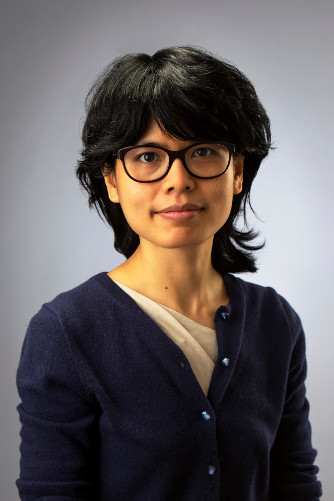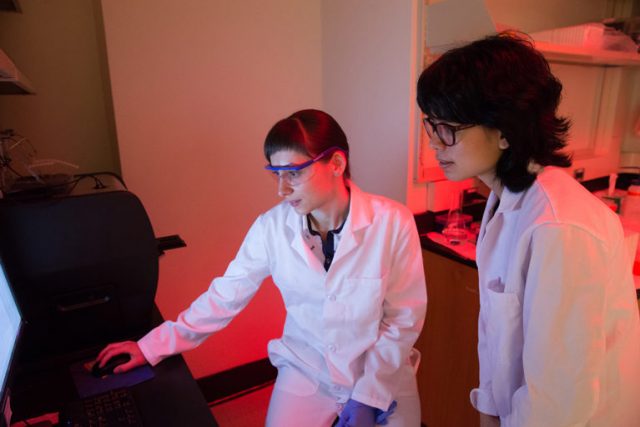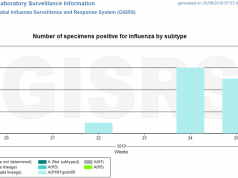Professor Yimon Aye,
École Polytechnique Fédérale de Lausanne (EPFL)
For outstanding research in biological chemistry of unusual merit and independence of thought and originality.
Professor Yimon Aye is the recipient of the 2020 Eli Lilly Award in Biological Chemistry. Her receipt of this award reflects the broad ramifications of her multifaceted research program on both chemistry and biology. Science in the Aye lab seeks to understand various non-canonical cellular communication processes. The Aye lab is most well-known for studies into electrophile signaling, a nuanced communication mode whereby chemically-reactive molecules directly modify select target proteins, leading to alteration of their function. Her lab is also well-known for investigations into nucleotide signaling pathways regulated by ligand-stimulated changes in protein–protein associations that are of importance in genome operation.
The work from the Aye lab is thus slowly bringing both eclectic forms of cellular communication into focus. She has pioneered the ingenious use of photocaged electrophiles (REX technologies) to bypass many of the limitations associated with the use of reactive electrophiles in cells and, unusually, whole organisms. The initial application of REX technologies was to studying individual-protein-specific electrophile signaling. This work introduced several new concepts into the chemical biology canon, including breaking the tether, and pseudo-intramolecular transfer.

Thus, her method, T-REX, allowed essentially native, electrophile-modified states of electrophile-sensor proteins to be generated on demand in cells and model organisms. For the first time, their specific signaling functions could be assayed and identified. Her work established that, even at low ligand-occupancy, electrophile signaling can rewire cellular decision-making processes. A change in protocol, but not the caging strategy, further allowed global assaying of electrophile sensing in specific organelles, or tissues. This approach has unearthed novel electrophile sensors that have been assessed by T-REX. Through a united team effort, the Aye lab is striving to develop novel interventions, and to better understanding of current drugs through active collaborations with industrial scientists.
In parallel, Aye also uses biochemistry/cell biology/genetics to uncover novel roles of one of the most ancient enzymes, ribonucleotide reductase (RNR). This enzyme is intrinsically tied to growth and life itself, as it is the source of nucleotide-pools essential for genome operation. However, RNR has also had unexpected behaviors in that it is a known suppressor of growth, particularly in tumors, where it is proposed to be a tumor suppressor. The Aye lab recently uncovered a signaling axis involving the large subunit of RNR as a direct inhibitor of a protein that promotes genome replication, ZRANB3. Further studies are starting to uncover how this axis plays a role in tumor formation and prevention, and how to control this pathway.
Yimon Aye was born and raised in Burma. She moved to the UK to study for sixth form (high school) and then read chemistry at Oxford University, UK (2004). She moved to Harvard University, USA, achieving a Ph.D. in organic chemistry under the supervision of Professor Dave Evans (2009). She then moved to Massachusetts Institute of Technology to research the cellular and biochemical regulatory mechanisms of the enzyme ribonucleotide reductase (RNR) with Professor JoAnne Stubbe. In her independent career at Cornell University that began in mid-2012, she set out to understand the detailed mechanisms of electrophile signaling. This impetus culminated in the development of “REX” technologies (T-REX™ delivery and G-REX™ profiling). In a parallel research program distinct from redox-dependent cell signaling, she studies proteins/pathways involved in mammalian genome maintenance and nucleotide signaling, including the mechanisms of anticancer agents in clinical use. As of August 2018, she is leading the Laboratory of Electrophiles And Genome Operation (LEAGO) at ISIC, EPFL (Switzerland) as a tenured associate professor.
The Aye Lab deploys a unique blend of chemical methodology, biotechnology, and mechanistic oncology and exploits cultured cells, worms, and fish as experimental models. Her independent early contributions to science have been recognized by: Beckman Young Investigator (2014); NSF CAREER (2014); NIH Director’s New Innovator (2014); Sloan Fellowship (2016); American Chemical Society CRT Young Investigator (2016); American Chemical Society WCC Rising Star Chemist (2016); International Chemical Biology Society Rising Star Chemical Biologist (2016); and Office of Naval Research Young Investigator (2017) Awards.
(Stated on Recipients/ACS Division of Biological Chemistry website)










